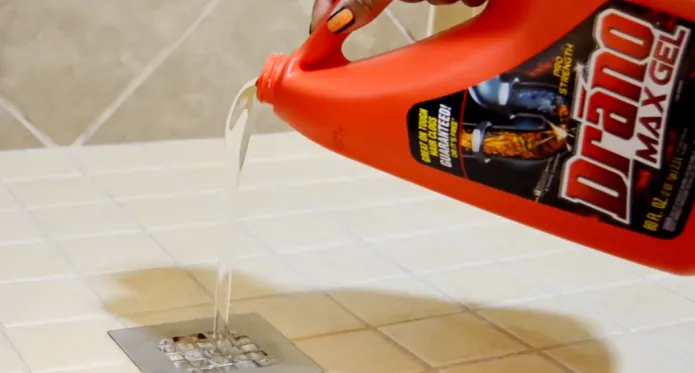Last Updated on November 14, 2023
Battling clogged drains can be a major headache. Hours of intense scrubbing and plunging may not even produce results, leaving you feeling exasperated. If that’s the case for you, no worries. There are powerful drain cleaning products available to help out in times like these. But one big question remains: can you leave the drain cleaner overnight?
If you’re dealing with a particularly nasty clog, leaving the drain cleaner on for an extended period can help clear things up. But keep in mind though, these chemical concoctions aren’t meant to stay too long and could wreak havoc on your pipes if they hang around too much.
So before you just dump that drain cleaner down the pipe and call it fixed, here’s everything you need to know about leaving one overnight.
Can You Leave Drain Cleaner Overnight: 5 Factors
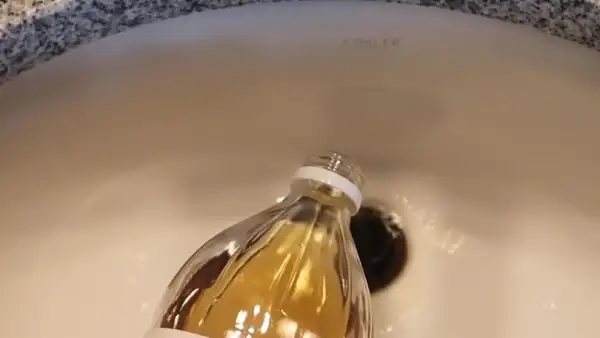
Before making the decision to leave that bathroom drain cleaner unattended for a few hours, there are certain things you should think about. To make an informed decision, consider these five factors:
1. Type of Drain Cleaner Used
When it comes to using drain cleaners, it is essential to consider the type of cleaner you are using. This can be the difference between successfully clearing your bathtub drain and potentially causing serious harm to your plumbing system.
Different types of drain cleaners contain various levels of hazardous and caustic chemicals. The choice of which one you use should depend on how long you intend to leave it in the system. You may be able to clear a clog faster with some heavier-duty drain cleaners with a few ounces, so they shouldn’t be left overnight.
Conversely, less intense cleaners may take longer to clear a clog but can safely be left overnight if necessary.
2. Pipe Material Used in Plumbing System
The material used for pipes in your plumbing system can also affect whether or not you can leave drain cleaner overnight without risking any potential damage. Different materials react differently when exposed to the same type of chemical solution. So it’s important to know what kind of pipes you have before choosing a drain cleaner.
Some materials are more susceptible than others when exposed to certain types of cleaners. For example, copper pipes tend to corrode faster with acidic solutions than plastic ones. Therefore, while leaving a milder cleaner overnight may pose less problem on plastic piping, it would likely cause significant damage to copper pipelines.
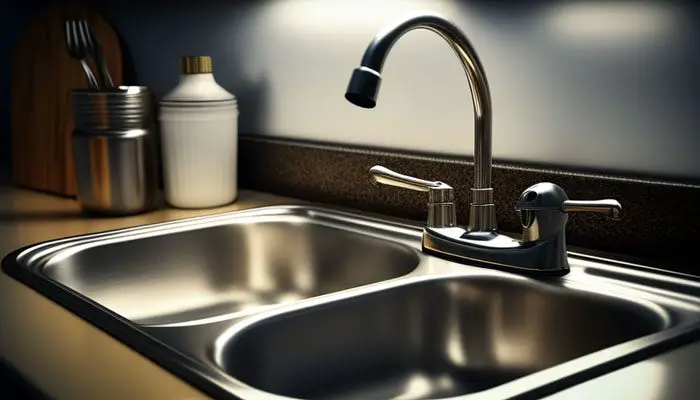
3. Environmental Conditions in Home or Building
The environmental conditions present within a home or building can play an important role when determining whether or not drain cleaner can safely be left overnight. In particular, the temperature could impact how quickly reactions occur between the solution and whatever blockage might exist within the pipe structure.
If left at higher temperatures, it potentially speeds up reactions and slows them down if kept at colder temperatures instead. Also, extreme temperatures over time could cause adverse reactions between certain types of pipe materials used and with certain types of drain cleaners.
4. Frequency of Use
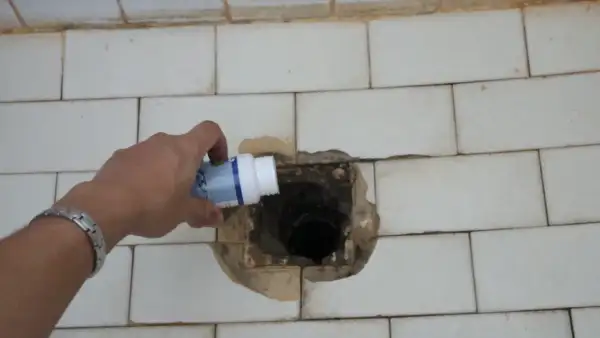
Regardless of what type of cleaner you choose or what kind of pipes make up your plumbing system, the frequency of use of the cleaning product is also something that should be considered. Over time, using too much chemical-based cleaning products can cause long-term damage to pipes and fixtures.
Try your best never to use them more than necessary, no matter how tempting immediate results may seem at times.
5. Overall Healthiness of Drains
Another factor that needs assessing before deciding whether or not one can safely leave out drain cleaner is related to the overall healthiness and cleanliness status existing within those pipes. The longer you wait between applications usually means dirtier (more accumulated gunk) drains.
A healthy drainage system is a must for long-term success. Too much time between applications can be risky, but if your pipes are already grungy and backed up, you’ll have to step it up by reducing the amount of time between solutions.
What’s the Optimum period to Let the Drain Cleaner Sit?
The optimum period of time for the drain cleaner to sit is 15 to 30 minutes. This allows the ingredients in the cleaner to dissolve properly and break down any debris or other blockages that may be present in your drain.
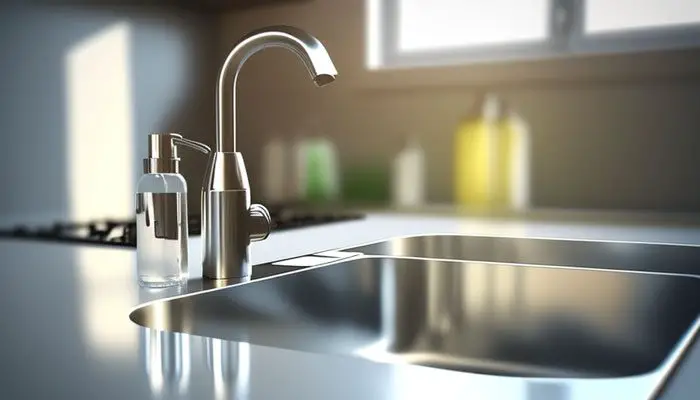
After the time has elapsed, it is essential to rinse the shower drain with hot water to ensure that all residual cleaning solution has been washed away. Leaving the drain cleaner in for too long can possibly damage the pipes. So it is essential not to exceed 30 minutes if the above factors have been considered.
Pros and Cons of Leaving Drain Cleaner Overnight
When it comes to leaving drain cleaner in the drain overnight, there are both pros and cons that must be considered. Here are some of the major ones:
Pros:
- Tough clogs may be easier to get rid of if you expose them longer.
- A drain cleaner left overnight may break down grease more completely.
- Less manual labor is required than alternative methods.
- Thoroughly cleaning drains prevents future clogs.
Cons:
- Pipes and fixtures are damaged over time as a result of corrosion.
- Possible toxic fumes if left overnight.
- Chemical reactions may occur when other products are used simultaneously.
Is It Okay to Leave Baking Soda And Vinegar In the Drain Overnight?
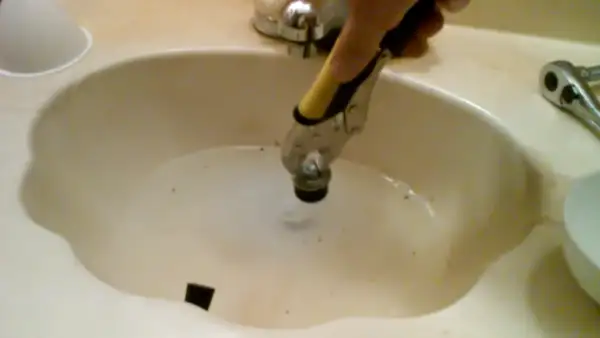
It is generally not recommended to leave baking soda or vinegar in drains overnight. Although this method might seem like an effective way of clearing a clogged sink, it can create several issues.
Vinegar and baking soda are both acidic, and prolonged exposure of these acids in combination with each other can corrode the pipes, leading to possible breaks or cracks. Meanwhile, while the initial reaction between these two compounds can help clear out debris, it will likely congeal again once the reaction stops.
This means that even if you manage to get unclog drains with these ingredients overnight, the debris may re-clog your bathroom drains the next day. That’s why it needs to rinse the drain with boiling water after the reaction is finished.
Ideally, it is best to use baking soda and vinegar during daytime hours when they can be monitored more closely to clear out a clog. You can also use this solution overnight if it’s your first time or when you don’t use any other chemical drain cleaners for weeks or months.
What Happens if You Don’t Rinse Your Drain Cleaner Left Overnight?
If you don’t rinse drain cleaners, you may expose yourself and your surroundings to some serious risks. Here are the most common risks that can occur:
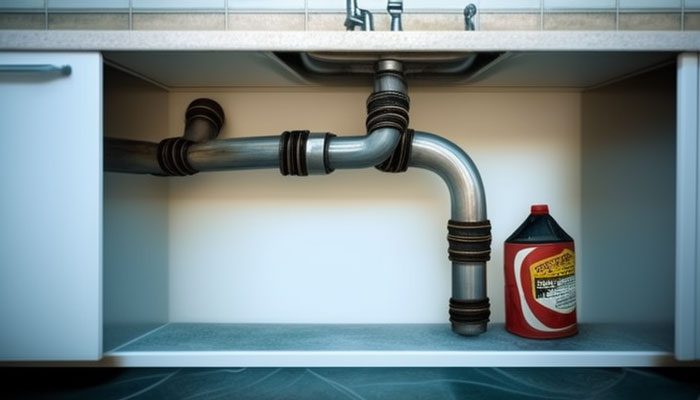
Corrosive Effects on Plumbing Systems
Suppose you don’t rinse the chemical drain cleaner that’s been left overnight. In that case, the corrosive nature of the chemical will continue to work against metal pipes and fittings, breaking down their structural integrity bit by bit until these plumbing components fail completely.
Without proper rinsing, pipes and fittings can become corroded very quickly and cause permanent damage to your plumbing system.
For plastic pipes and fittings have the potential for significant cracking or warping due to the corrosive properties of drain cleaners. These cracks can create a weak link in plumbing lines and eventually lead to leakage or contamination of drinking water, which could spell disaster depending upon the severity of any leak.
Unpleasant Odors and Smells
If you do not rinse away leftover drain cleaner following its overnight application, unpleasant odors are likely to be released into the air. As chlorine gas off-gasses from reaction with other organic materials in your pipes. This gas can be both irritating and hazardous if inhaled.
Even trace amounts can cause dry eyes, sore throat, coughing fits, and more serious respiratory issues. In addition to chlorine fumes, other noxious gasses may form from a reaction between household chemicals in the kitchen sink when left unfiltered overnight.
Potentially Deadly Reactions With Other Household Products
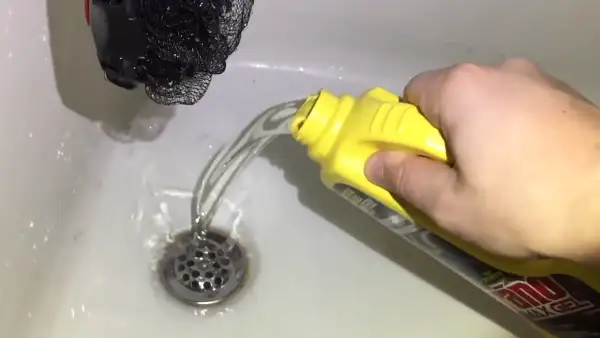
Without proper cleaning after using drain cleaner overnight, it has the potential to react unpredictably with other household products or organic materials when mixed together. Which could create a deadly cocktail of chemicals leaking into your home environment.
It’s essential not only to rinse off any remaining drain cleaner but also to ensure that you keep all different types of cleaners separate from each other.
Environmental Impacts
Not only does failing to rinse away leftover drain cleaners pose risks directly related to one’s health and safety through direct contact or via noxious gas production. Also, this type of cleaning agent poses a risk to the environment due to its potential effects on groundwater sources in residential areas.
When not disposed of properly, toxins like sulphuric acid and metals found inside plumbing systems, such as lead, are discharged into local rivers, lakes, and seas. Introducing hazardous material into fragile ecosystems while affecting delicate wildlife populations.
You can use an environmentally friendly drain cleaner to avoid the risks and damage. For example, liquid hair drain clog remover & cleaner, grease trap & sewer controls drain cleaner and pipes & drains clog remover and cleaner are some good eco-friendly drain cleaners.
Economic Consequences
Failure to rinse drain cleaner before discarding it will likely result in costly repairs later down the line due to corrosion caused by its corrosive properties. Aside from high costs associated with the repair of corroded plumbing systems caused by acidic residue buildup.
Primarily a metal pipe, contaminated water sources caused by improper use of these chemicals can lead to costly cleanups later on due to their hazardous nature.
When Left Overnight, Does the Drain Cleaner Dissolve In Water?
Yes, the drain cleaner will dissolve in water when left overnight. In fact, it is designed to react with water for the purpose of removing blockages from plumbing systems. Drain cleaner typically contains a base such as lye and other chemicals like hydrochloric acid and sodium hydroxide.
When combined with water, they form exothermic reactions that produce heat, which helps break down and dissolve any clogging material. This reaction also produces other byproducts, such as hydrogen gas. Therefore, if you choose to use this product, ensure that the area is well-ventilated.
Will Drain Cleaner Work If There Is Standing Water?
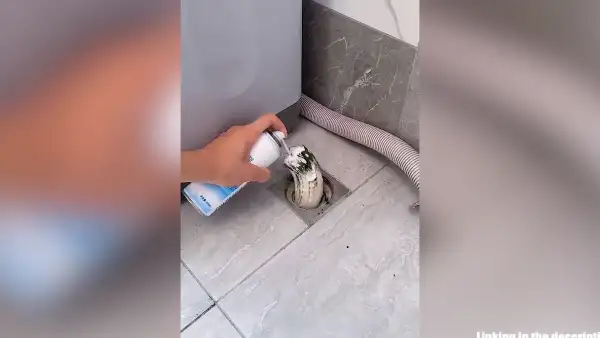
There is no need to worry about standing water affecting the drain cleaner. This is because the drain cleaner contains various chemicals that are designed to dissolve and break down any blockages or a clogged toilet.
Aside from that, the drain cleaner formula is designed to pour through the standing water and reach the source of the issue. Once it reaches this point, it can then begin to dissolve and break apart any blockages or deposits.
Overnight Drain Care: But Proceed With Caution
Leaving a drain cleaner overnight can be beneficial for clearing out a clogged drain, but there are some risks involved. For maximum effectiveness, it’s advisable to research the recommended best drain cleaner solutions and their directions before you leave anything in your drains overnight. Also, it is essential not to forget about them afterward. Otherwise, these chemicals could end up damaging your pipes or worse. With this information in hand, you can now decide whether it is safe to leave a drain cleaner overnight.

